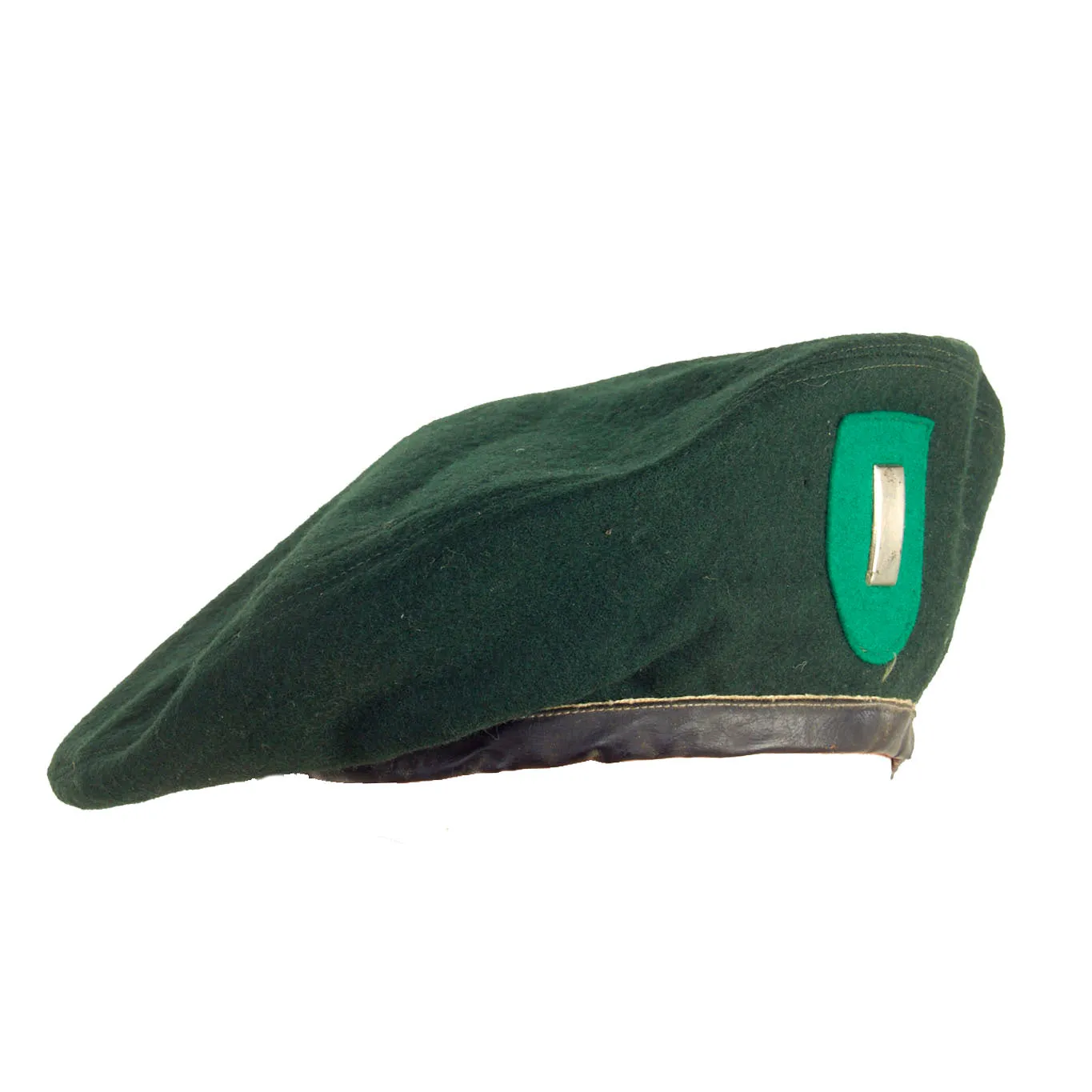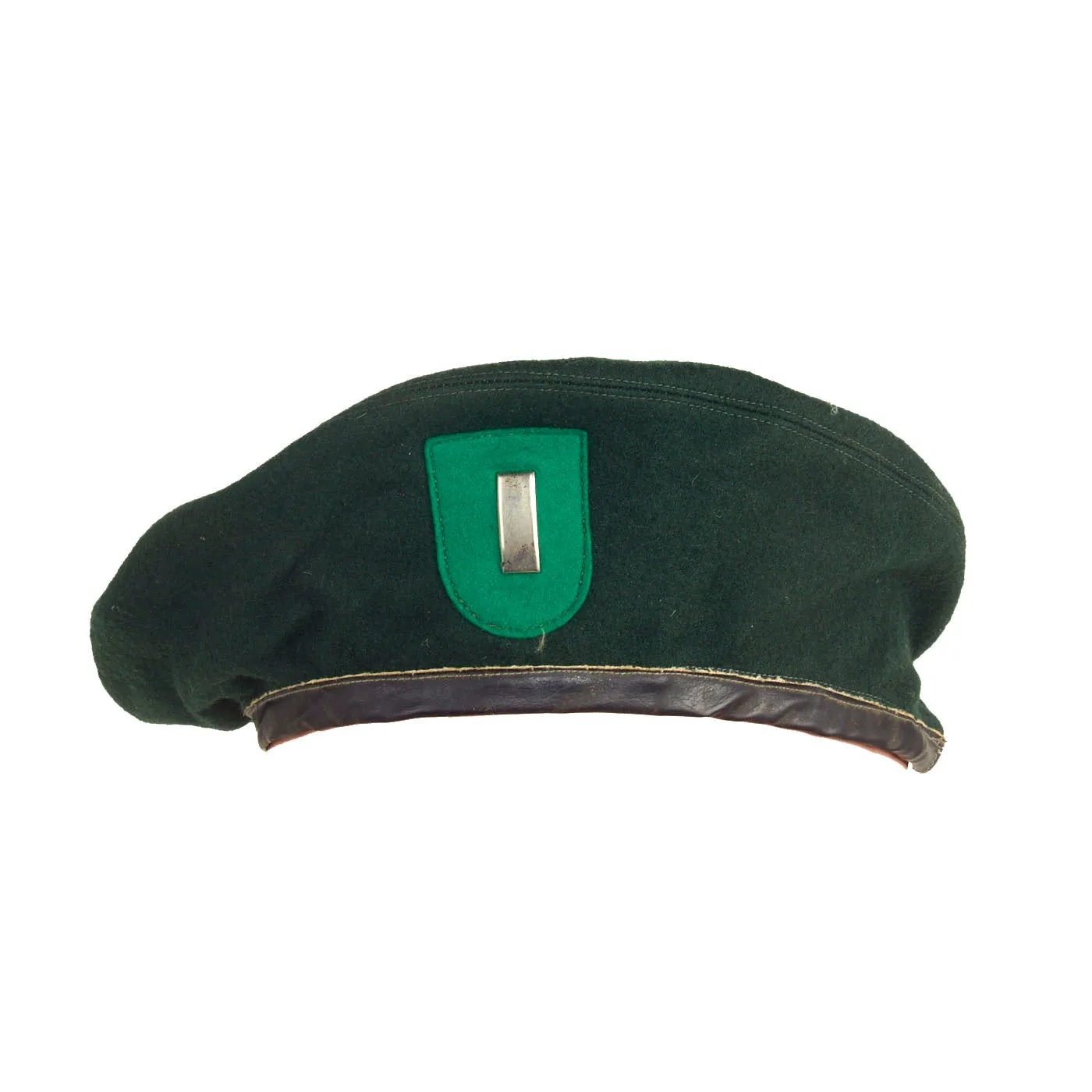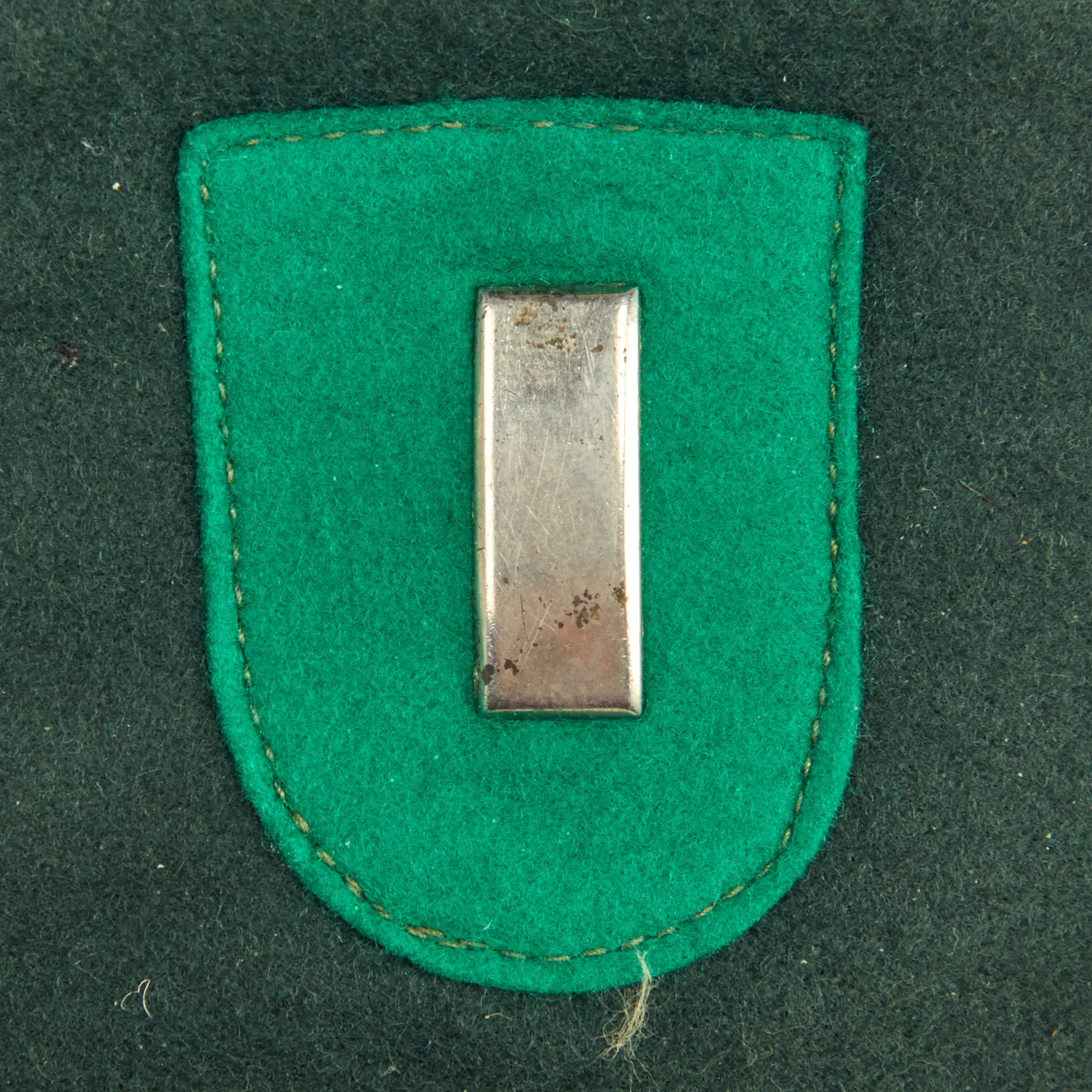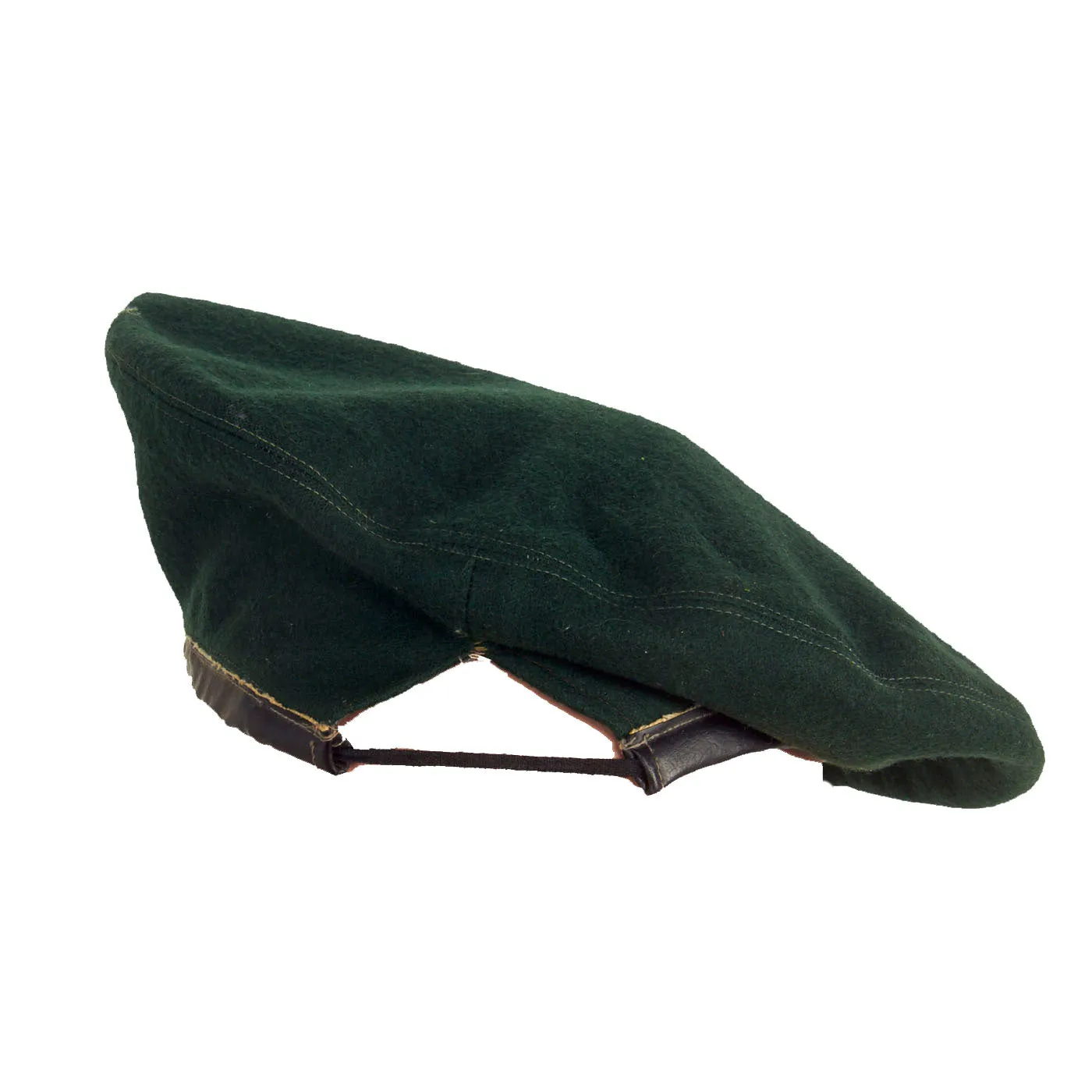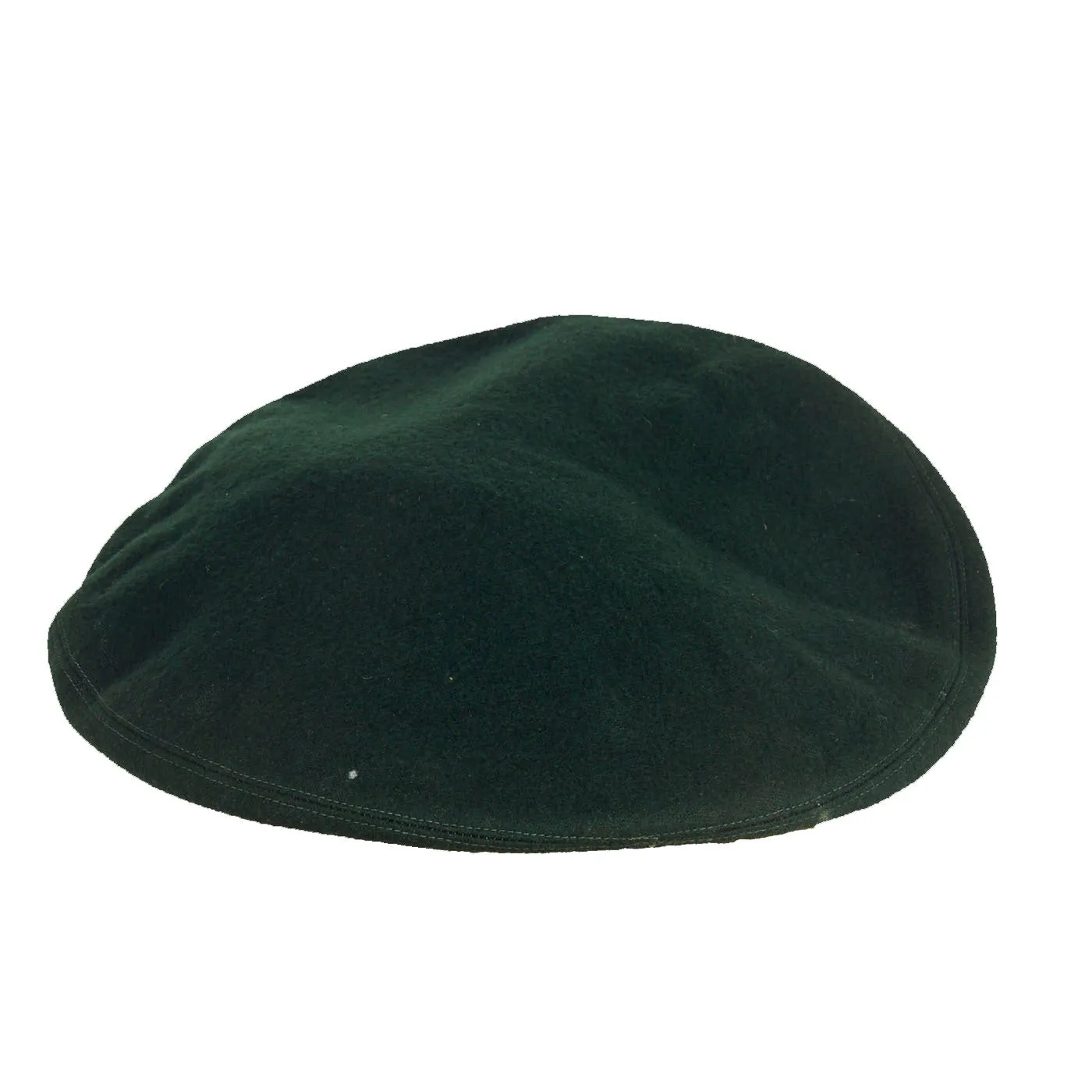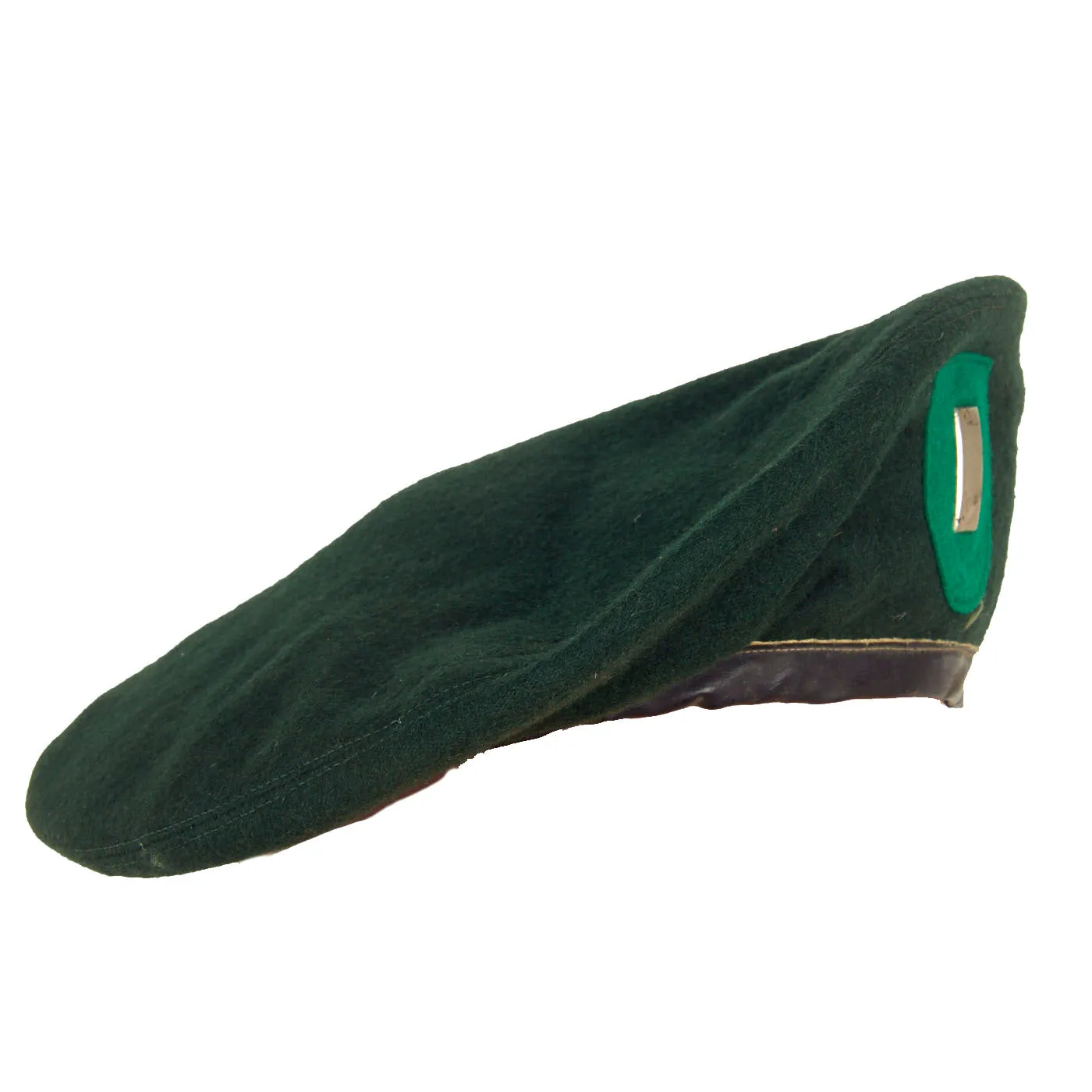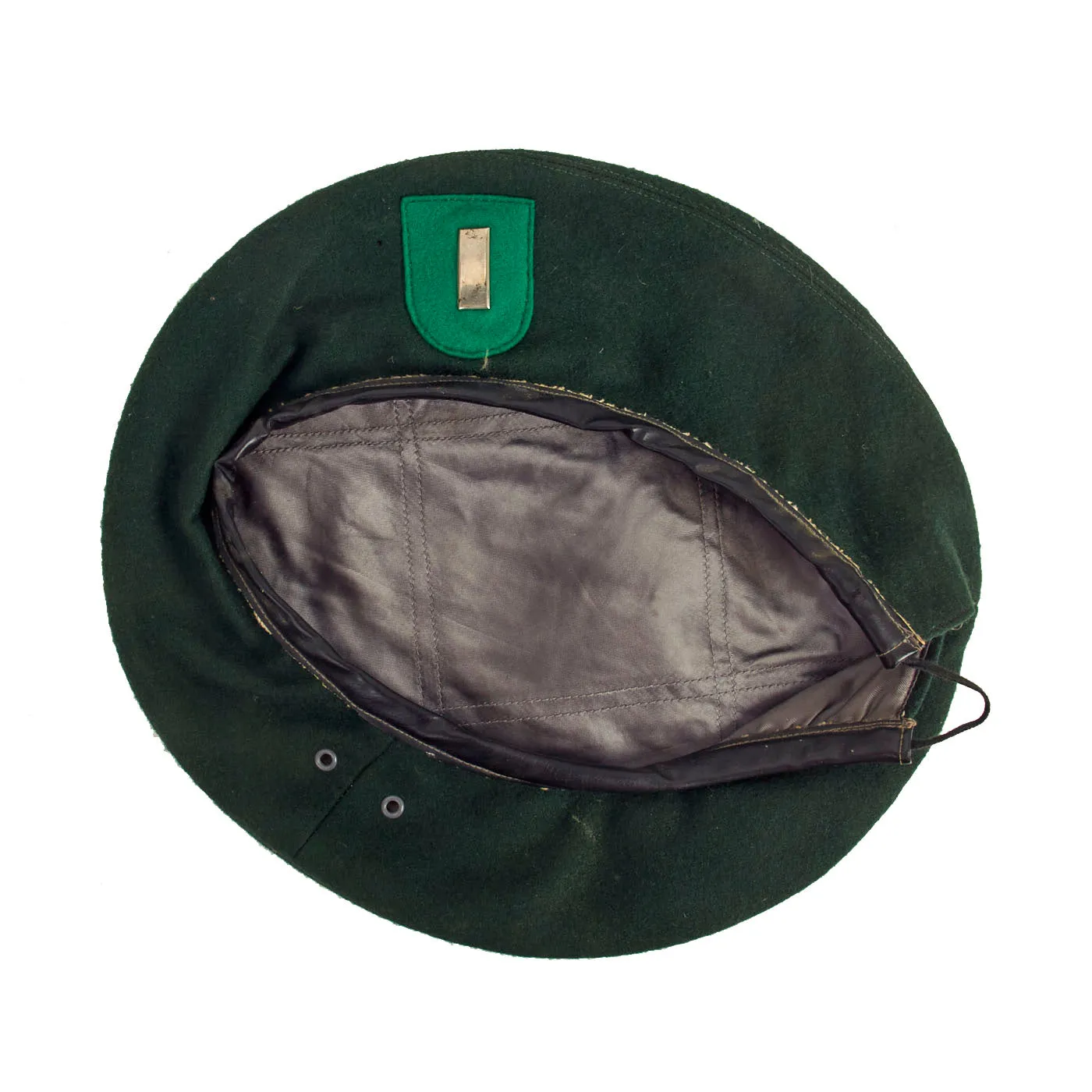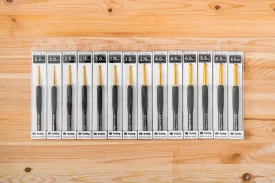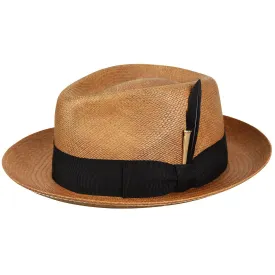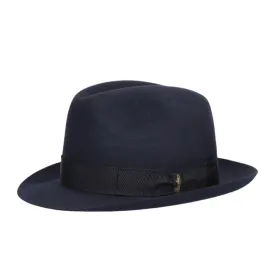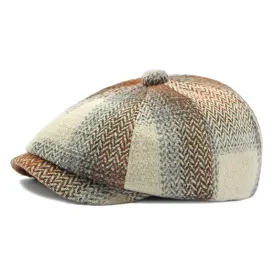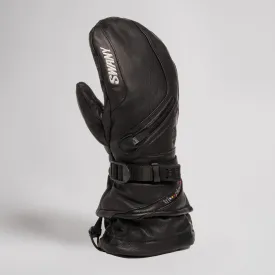Original Item: Only One Available This is an incredibly rare circa 1950’s US Special Forces Green Beret which was made in Germany for use by members of the 10th Special Forces Group which was stationed in Bavaria at that time. The berets were authorized locally by the group commander in 1955, and were not officially authorized for wear until 1961. Following the 1961 official authorization of the beret, the US Army sourced Berets from Canada until the U.S. military contracted to have their own Berets made. Before 1961, berets were sourced within Europe.
What we have here is an awesome example of a German-Made Beret from the 1955-1961 time period!
The beret is of a high grade wool felt. It is lined with grey rayon, which appears to be leftover material from the lining used in German WWII military uniforms and headgear! Even the vent eyelets appear to be left over WWII stocks, as they are identical to the type used on German military headgear during WWI! They are even painted feldgrau!
Inside, the cap has written in tell-tale Germanic handwriting the size, in tailor’s pencil “57/58”. The cap also features an early cut-edge felt 10th SFG flash, to which has pinned a Lieutenant’s Bar which appears to have been pinned on forever.
This is an excellent opportunity to obtain a very rare early Special Forces Beret, with a unique connection to the WWII German Military as well! Quite unusual!
10th Special Forces Group History
The 10th SFG was activated on June 19,1952 at Fort Bragg, N.C., with Col. Aaron Bank in command. Headquarters and Headquarters Company, 10th SFG was activated on 19 May 1952, preceding the activation of the Group proper.
The first class of the Special Forces Course graduated in 1952 and the Group grew to an aggregate strength of 1,700 personnel over the next year. In September 1953, following intensive individual and team training, 782 members of the Group, deployed to Germany and established Group headquarters at Lengries in Bavaria. An additional 99 personnel deployed to Korea where they were assigned to the 8240th Army Unit which was training anti-Communist North Korean partisans (called the United Nations Partisan Forces Korea) on the off-shore islands.
The remaining personnel stayed at Fort Bragg where they formed the core of the 77th Special Forces Group. In 1968, the majority of the Group redeployed to Fort Devens, Massachusetts. The 1st Battalion remained in Germany as part of Special Forces Detachment-Europe, and is currently located at Panzer Kaserne in Stuttgart. Between 1994 and 1995, 10th SFG moved to Fort Carson, Colorado, where three line battalions, 2nd, 3rd and 4th, plus a Group Support Battalion, operate today.
1950s
The group's mission was to conduct partisan warfare behind enemy lines in the event of a Soviet invasion of Europe. The 10th Special Forces Group originally attracted many former members of the OSS, Rangers and Airborne units from World War II as well as many foreign nationals.
Among the more notable of these men was Major Larry Thorne, a former Finnish Army soldier who was awarded the Mannerheim Cross Fourth Class during the Russo-Finish War in 1938-1939). In 1951 Congress passed the Lodge Act, which provided for the recruiting of foreign nationals, predominantly Eastern Europeans, into the United States military. It was originally envisioned that a significant percentage of the members would be native Europeans. Several of the initial volunteers in the 10th SFG were anti-Communist Lodge Act recruits.
The Green Beret was authorized for wear at Bad Tölz by the Group commander, Col. William Ekman, on 17 November 1955, and its usage became group policy. Every soldier in the unit wore a green beret as part of the uniform. The Department of the Army (DA) did not recognize the beret as official headgear, and only after President John F. Kennedy's visit to Fort Bragg in October 1961 was the wear of the Green Beret authorized. President Kennedy, a major champion of the Special Forces, issued a Presidential Directive recognizing the Green Beret as the "Symbol of Excellence" and the official headgear of Special Forces.
The 10th SFG was recognized publicly for the first time in 1955 when the New York Times published two articles about the unit, describing them as a "liberation" force designed to fight behind enemy lines. Pictures showed soldiers of the Group wearing their berets, with their faces blacked out to conceal their identities.
1960s
10th Group Operational Detachments (ODAs) began exchange training with unconventional forces in friendly countries. Among these was the United Kingdom, Germany, France, Norway, Spain, Italy, and Greece. This training taught 10th Group soldiers how to subsist on native food and contributed to establishing valuable rapport with the host and partner nation forces.
In the summer of 1960, a few 10th Group members deployed to the newly independent Democratic Republic of the Congo. Amidst revolutionary turmoil, the men rescued endangered Americans and Europeans and moved them to Leopoldville, where a larger evacuation was led by Belgian paratroopers.
The group evacuated 239 civilians in only nine days without suffering a single casualty. Later in 1962, a 10th Group team conducted a mountaintop operation in Iran to recover the bodies of American service personnel killed in an airplane crash. It was also during the 1960's that Special Operations teams supported the historic Mercury Space Program in Africa.
As the United States became increasingly involved in Vietnam, counter-insurgency warfare became the primary focus of the Special Forces, rather than the traditional unconventional warfare. While the 10th SFG never deployed to Vietnam as a unit, many soldiers and officers did rotate into the country and participated in Special Forces operations. Thus began the use of Specialized Infil ODAs.
Special Forces Group organization in the Vietnam Era
During the Vietnam War, 10th Group began training Middle Eastern special warfare forces. In Jordan, B Detachment established that nation's first airborne school, with King Hussein attending the inaugural graduation parachute jump. In 1963, Company C trained 350 officers and NCOs of a guerrilla force fighting the socialist government in Yemen. Detachments also traveled to Iran to train the Iranian Special Forces, along with Kurdish tribesmen in the mountains of Iran. Operational Detachments also trained Turkish and Pakistani Special Forces.
In 1968, the 10th Special Forces Group, minus the 1st Battalion, was deployed from Europe to Fort Devens, Massachusetts. 1st Battalion remained in Bad Tölz, Germany.




